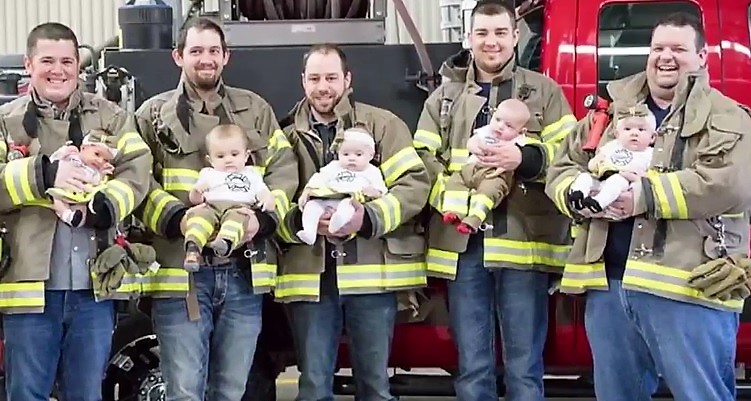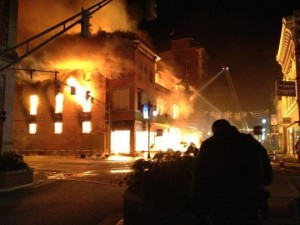If DC is unprepared for emergencies, big or small, blame The Washington Post
Read Washington Post editorial
The Washington Post published an editorial this (Sunday) evening titled, “The D.C. area’s unprepared for an emergency, big or small”. It focused on the recent response to the deadly fire incident at Metro’s L’Enfant Plaza station. You will probably be surprised to learn that the editorial writer(s) bears responsibility for some of the issues with this response and for emergencies that have yet to happen.
The editorial talks about problems with both Metro and the District of Columbia government. You will get no argument from me that Metro’s interactions with DC and other area fire departments during emergency situations is abysmal. It has been that way for decades. There’s no excuse for WMATA’s negligence or its safety record. The Post and everyone else need to push for much better accountability from Metro when it comes to safety.
As for the criticism of DC’s preparedness — that takes some real chutzpah on the part of the editorial board of The Washington Post. They were the great enablers of what may be the worst emergency management team DC has ever seen.

Despite both reporters and the union representing firefighters regularly sounding the alarm about crucial areas where the department was not prepared, the Post firmly backed the policies of Fire Chief Kenneth Ellerbe and Deputy Mayor Paul Quander for a very long time. The Post didn’t seem to care that this duo wouldn’t hire firefighters and paramedics to keep ambulances on the street, didn’t properly maintain fire trucks and ambulances and failed to purchase new apparatus.
If you do a little digging, you will also discover the management style of Ellerbe and Quander greatly hindered the relationship between the department and outside agencies such as WMATA. Just look at this line in the January 8 email from the fire department to Metro about radio problems at L’Enfant Plaza: “We are jumping back into the world of sharing information with our partners directly …” (Page 12 of DC report on Metro incident). Any thoughts out there on the implications of that sentence and what it says about the interagency communications needed to properly prepare for large scale emergencies?
Instead of making sure this was a department worthy of the Nation’s Capital, Quander and Ellerbe, with the approval of Mayor Vincent Gray, wasted four years focusing on a single-minded agenda — to get rid of anyone who didn’t live in DC. They attempted to do this with a work schedule for firefighters that would have made the city even less safe and cost taxpayers more money.
Luckily, despite years of trying, this plan never got off the ground. But during those years Quander and Ellerbe refused to hire anyone. Instead, they insisted this new schedule would cut back on the number of firefighters needed by the department. At the same time, the city’s population was rapidly expanding and the calls for service increasing. What a brilliant plan.
Would you like to guess who repeatedly encouraged Quander and Ellerbe to put all of their efforts and capital into trying to get the work schedule changed for firefighters? Yes, it was the same people who wrote the editorial this evening about DC not being prepared for emergencies.

It’s not just the fire department that became less prepared for major emergencies under Paul Quander’s watch. Quander was also responsible for the Office of Unified Communications (OUC), the City’s 911 center. This is an extremely mismanaged, ill-trained and poorly lead part of the DC government. But Quander seemed to protect OUC at every turn. He never showed an interest in making sure the public was well served by an agency that is key in making sure all emergencies are handled promptly and efficiently.
Take a look at the way OUC handled the calls from Metro on January 12. It took five minutes to send just one engine to the initial report of a fire at Gallery Place. Of course, one engine isn’t the correct response to a fire reported inside of a Metro station or any other building. Then, after Metro contacted OUC again with the correct location of L’Enfant Plaza, it took the 911 center six minutes to dispatch the call. These call handling times are unacceptable for any 911 center, anywhere.
Let’s not forget it was the darlings of the Post editorial board, Quander and Ellerbe, who insisted on encrypting the fire department’s new radios. They did this despite warnings from many quarters, including fire chiefs from throughout the National Capital region.
As much as I think encryption is a bad idea, it probably wasn’t the reason for the radio problems firefighters faced on January 12. Even Metro seems to be distancing itself from that claim. But the move by Quander and Ellerbe to keep all operations of the department a secret, still has the potential to create real issues at future large scale emergency scenes. We should all be happy to hear the Bowser administration is considering ditching encryption for the DC Fire & EMS Department.
It’s still unclear exactly what caused the new radio system for firefighters to fail at L’Enfant Plaza. But if it is a DC issue and not a problem with Metro’s part of the underground radio system, you can’t blame it on the DC Fire and EMS Department. The radio system is managed by the Office of Unified Communications.
So, Washington Post editorial board, you need to do a little self-reflecting and think about your role before you start crying that DC isn’t ready for the big one. You repeatedly showed little understanding of the major issues surrounding the management of emergencies in the District of Columbia. Instead, you blindly supported two emergency managers who focused solely on a de facto residency requirement for firefighters at great cost to the readiness of the DC Fire and EMS Department.
For the better part of four years, Quander, Ellerbe and The Washington Post editorial board focused our attention on a problem that didn’t really impact the emergency response capabilities in DC. At the same time they ignored key issues that directly played a role in what happened on the Yellow Line January 12 and will happen at other emergencies in the near future.
To put this another way, I‘m willing to bet when Lt. Stephen Kuhn and the members of Rescue Squad 1 became the first firefighters to climb aboard that smoke filled Metro train in the tunnel at L’Enfant Plaza, not one passenger asked their rescuers if they lived in the District of Columbia, but many asked “What took you so long?”






